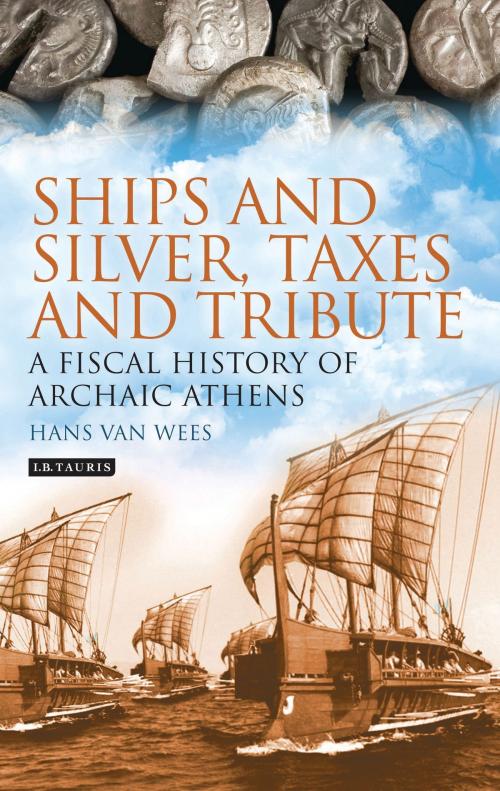Ships and Silver, Taxes and Tribute
A Fiscal History of Archaic Athens
Nonfiction, History, Ancient History, Business & Finance| Author: | Hans van Wees | ISBN: | 9780857734334 |
| Publisher: | Bloomsbury Publishing | Publication: | September 4, 2013 |
| Imprint: | I.B. Tauris | Language: | English |
| Author: | Hans van Wees |
| ISBN: | 9780857734334 |
| Publisher: | Bloomsbury Publishing |
| Publication: | September 4, 2013 |
| Imprint: | I.B. Tauris |
| Language: | English |
Historians since Herodotus and Thucydides have claimed that the year 483 BCE marked a turning point in the history of Athens. For it was then that Themistocles mobilized the revenues from the city's highly productive silver mines to build an enormous war fleet. This income stream is thought to have become the basis of Athenian imperial power, the driving force behind its democracy and the centre of its system of public finance. But in his groundbreaking new book, Hans van Wees argues otherwise. He shows that Themistocles did not transform Athens, but merely expanded a navy-centred system of public finance that had already existed at least a generation before the general's own time, and had important precursors at least a century earlier. The author reconstructs the scattered evidence for all aspects of public finance, in archaic Greece at large and early Athens in particular, to reveal that a complex machinery of public funding and spending was in place as early as the reforms of Solon in 594 BCE. Public finance was in fact a key factor in the rise of the early Athenian state – long before Themistocles, the empire and democracy.
'With this important book Hans van Wees is the first historian systematically to approach ancient Greek economy and society along the lines of the "new fiscal history". The results are highly rewarding, and go far beyond the area of public finance. In addition to a fresh perspective on key aspects of the archaic Greek world, the author provides numerous insights into the elusive process of state formation in Athens and elsewhere.'
- Paul Millett, Senior Lecturer in Classics, University of Cambridge, author of Lending and Borrowing in Ancient Athens
Historians since Herodotus and Thucydides have claimed that the year 483 BCE marked a turning point in the history of Athens. For it was then that Themistocles mobilized the revenues from the city's highly productive silver mines to build an enormous war fleet. This income stream is thought to have become the basis of Athenian imperial power, the driving force behind its democracy and the centre of its system of public finance. But in his groundbreaking new book, Hans van Wees argues otherwise. He shows that Themistocles did not transform Athens, but merely expanded a navy-centred system of public finance that had already existed at least a generation before the general's own time, and had important precursors at least a century earlier. The author reconstructs the scattered evidence for all aspects of public finance, in archaic Greece at large and early Athens in particular, to reveal that a complex machinery of public funding and spending was in place as early as the reforms of Solon in 594 BCE. Public finance was in fact a key factor in the rise of the early Athenian state – long before Themistocles, the empire and democracy.
'With this important book Hans van Wees is the first historian systematically to approach ancient Greek economy and society along the lines of the "new fiscal history". The results are highly rewarding, and go far beyond the area of public finance. In addition to a fresh perspective on key aspects of the archaic Greek world, the author provides numerous insights into the elusive process of state formation in Athens and elsewhere.'
- Paul Millett, Senior Lecturer in Classics, University of Cambridge, author of Lending and Borrowing in Ancient Athens















